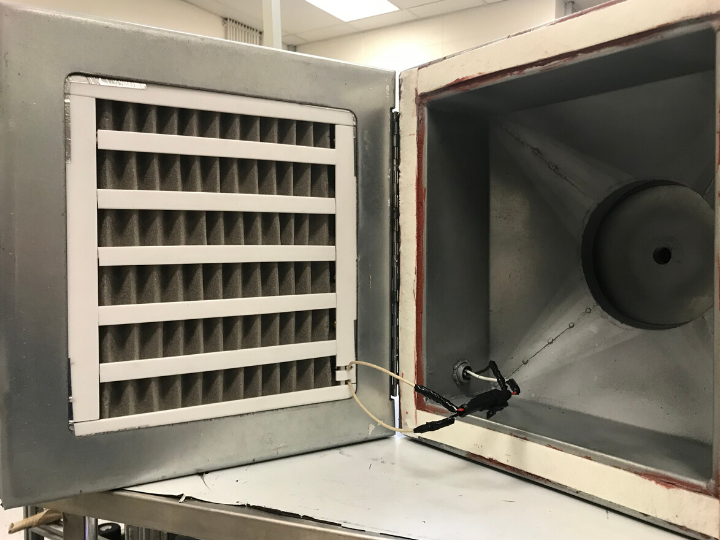Scientists Create 'Catch-And-Kill' Nickel Filter To Destroy Coronavirus, Anthrax
KEY POINTS
- Scientists developed a heated air filter to 'trap and kill' SARS-CoV2 quickly
- According to laboratory tests, 99.8% of the aerosolized virus was killed in a single pass
- The team behind the air filter wants to roll-out the device in high-risk locations
A team of researchers developed a "catch and kill" filter that they say can kill SARS-CoV2, the virus responsible for COVID-19, among other pathogens. According to the report, 99.8% of the virus was instantly killed in a single pass through the filter.
It was on March 31 when researchers from the Texas Center for Superconductivity at the University of Houston (TcSUH) were approached by Medistar, a Houston-based medical real estate development firm, to develop a virus-trapping filter.
At the time, the researchers already knew that SARS-CoV2 can remain in the air for approximately three hours, while Medistar also knew that the virus could not survive temperatures above 70 degrees Celsius. The idea was to develop a filter that could quickly remove the virus from the air and kill it.
For the project, the team used commercially available nickel foam because it is porous, electrically conductive and flexible. As such, it would allow the air to pass while also being capable of being heated to 200 degrees Celsius, which is far hotter than the temperature that can kill the virus.
"Virus test results revealed that 99.8% of the aerosolized SARS-CoV-2 was caught and killed by a single pass through a novel Ni-foam-based filter when heated up to 200°C," the researchers wrote in the study now published in Materials Today Physics, adding that the filter was also able to catch and kill 99.9% of Bacillus anthracis, the airborne spore that causes anthrax infection.
Medistar's Monzer Hourani and Dr. Garret K. Peel are now calling for a roll-out of the device, particularly for places where frontliners and essential workers are most at risk of potentially getting exposed to the virus. This includes hospitals, schools, public transport and other health care facilities.
"This filter could be useful in airports and in airplanes, in office buildings, schools and cruise ships to stop the spread of COVID-19," TcSUH director and study co-corresponding author, Zhifeng Ren, said in a news release from the University of Houston. "Its ability to help control the spread of the virus could be very useful for society."
The Medistar team is also proposing a desktop version of the filter that can purify the air in an individual's immediate surroundings.
The news comes just as the World Health Organization (WHO) is reevaluating evidence on the possible airborne transmission of SARS-CoV2 after 239 scientists released an open letter to the organization, presenting convincing evidence that aerosols can infect people with the coronavirus.

© Copyright IBTimes 2024. All rights reserved.






















